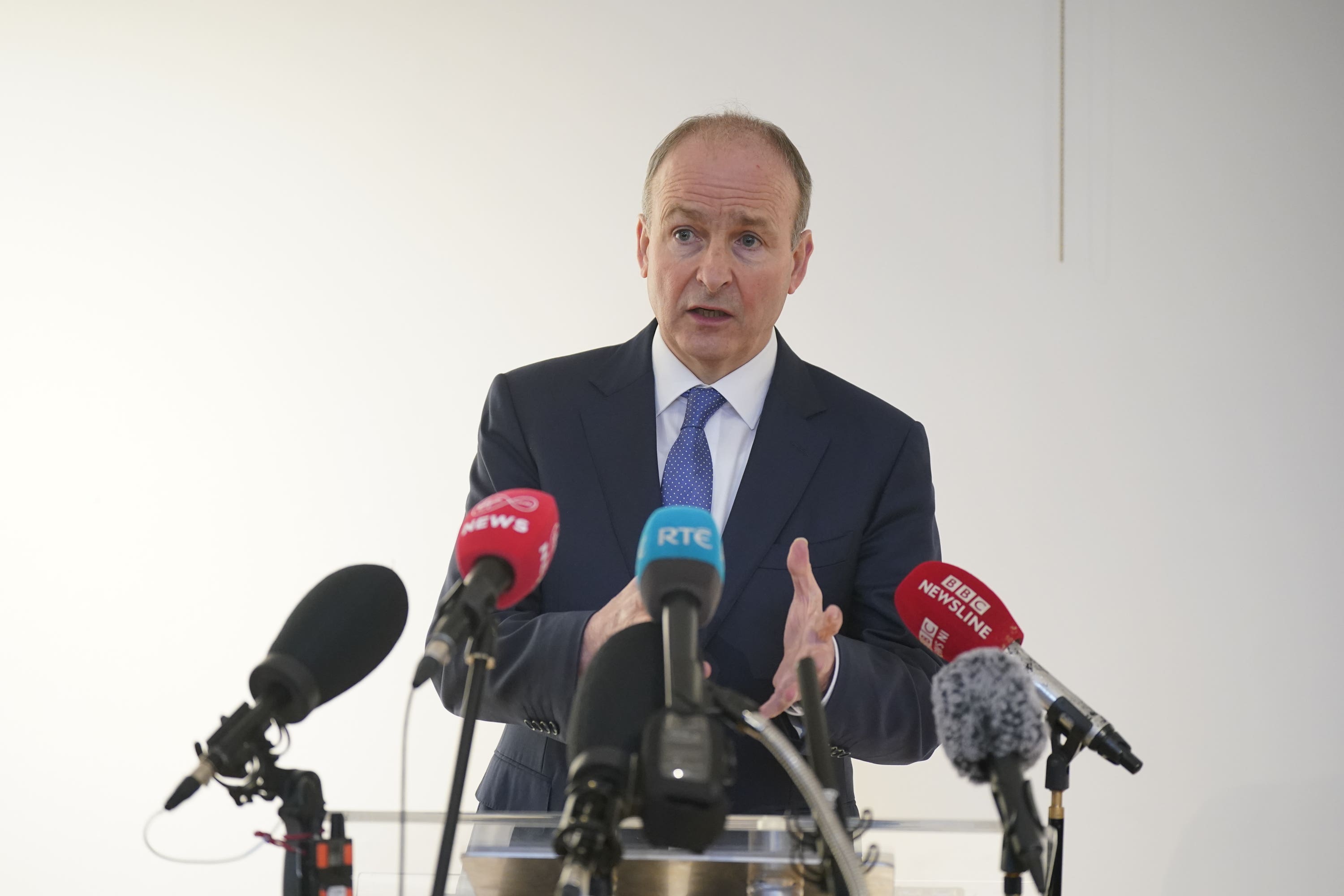Unionist advocacy ‘paid dividends’ in changing post-Brexit trade rules – Martin
The Tanaiste said he does ‘not anticipate any difficulties’ from the EU side on a deal on trade arrangements for Northern Ireland.

Your support helps us to tell the story
From reproductive rights to climate change to Big Tech, The Independent is on the ground when the story is developing. Whether it's investigating the financials of Elon Musk's pro-Trump PAC or producing our latest documentary, 'The A Word', which shines a light on the American women fighting for reproductive rights, we know how important it is to parse out the facts from the messaging.
At such a critical moment in US history, we need reporters on the ground. Your donation allows us to keep sending journalists to speak to both sides of the story.
The Independent is trusted by Americans across the entire political spectrum. And unlike many other quality news outlets, we choose not to lock Americans out of our reporting and analysis with paywalls. We believe quality journalism should be available to everyone, paid for by those who can afford it.
Your support makes all the difference.Ireland’s deputy premier has said advocacy from unionism has “paid dividends” in changing post-Brexit trade arrangements for Northern Ireland as the new deal was published.
Tanaiste Micheal Martin said now is a moment “we need to grasp” for the benefit of people in Northern Ireland and across the entire island.
The foreign affairs minister was speaking after meeting with Stormont parties in Belfast as the deal agreed between the DUP and the UK Government was unveiled.
Under the deal, routine post-Brexit checks on goods shipped from Great Britain to final destinations in Northern Ireland are to be removed.
The post-Brexit red lane for transporting goods from GB to NI and on into the EU single market will remain, but the command paper offers measures aimed at reducing the volume of trade required to use that red-tape heavy route, with a prediction that 80% of goods will now move free of routine checks through the internal market system.
The DUP has agreed to drop its two-year blockade of Stormont in exchange for measures aimed at addressing its concerns about post-Brexit trading arrangements in the Windsor Framework that created economic barriers between Northern Ireland and the rest of the UK.
Speaking at the Ulster Museum in Belfast, Mr Martin said he had listened “very carefully” to unionist concerns in his current role and when he was taoiseach.
He said: “In many ways, the Windsor Framework was a significant advance on the protocol and what had been there from a unionist perspective, and I would say that advocacy from unionism paid dividends in respect of the Windsor Framework, and indeed, on other issues as well in respect of the trading arrangements.
“Because, let’s face it, and I’ve always said this: many elements of Windsor, people were told couldn’t happen and it did happen.”
Mr Martin said he had not yet read the agreement, but said he does “not anticipate any difficulties” from the EU in relation to the new deal.
He said there are “fairly significant” mechanisms within the Windsor Framework to address any issues.
“We are confident and we have been assured that there is nothing in these papers that would undermine the architecture of the Good Friday Agreement,” he added.
Asked what is protecting the EU single market if goods going from GB to NI are no longer checked, he said: “For goods that are going from the UK into Northern Ireland that are staying in Northern Ireland, we’ve always been of the view that the more streamlined and seamless one can make that, the better all round, because we want any of the frameworks we put in place to work for industry, business and jobs in Northern Ireland.”
He said the impact of Brexit on Northern Ireland has been “profound” and “probably wasn’t given due consideration” before the referendum was held.
“What we’re witnessing here is the long shadow of Brexit over the Good Friday Agreement and Northern Ireland – it’s been eight years since the Brexit vote,” Mr Martin continued.
“It’s fallen into this generation of politicians and governments to try and create a framework to manage the reality of Brexit.”
Mr Martin said it is “a very big moment” for Sinn Fein vice-president Michelle O’Neill, who is in line to become the first nationalist first minister of Northern Ireland.
He added: “I wish Michelle the very best… and, indeed, for whoever becomes the deputy first minister, representing the DUP.
“I do sense from talking to political parties that there is a recognition and the realisation that this is a moment in time now when the restoration of the Assembly and executive must lead to a sustainable restoration, must lead to focus on the issues that matter to the people of Northern Ireland.
“Because the people of Northern Ireland want the political institutions to work for them, the Assembly to work for them, the executive to work for them, and there’s a lot of work to be done to persuade and convince the people of Northern Ireland that their vote matters, in respect of who they elect to the Assembly, and that it can lead to politics working in Northern Ireland.
“This is a welcome opportunity and it’s a moment which we need to grasp for the benefit of all the people living in Northern Ireland, and indeed on the island of Ireland.”
Subscribe to Independent Premium to bookmark this article
Want to bookmark your favourite articles and stories to read or reference later? Start your Independent Premium subscription today.